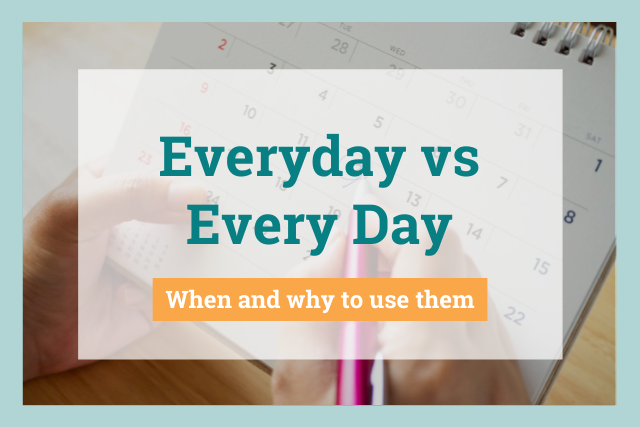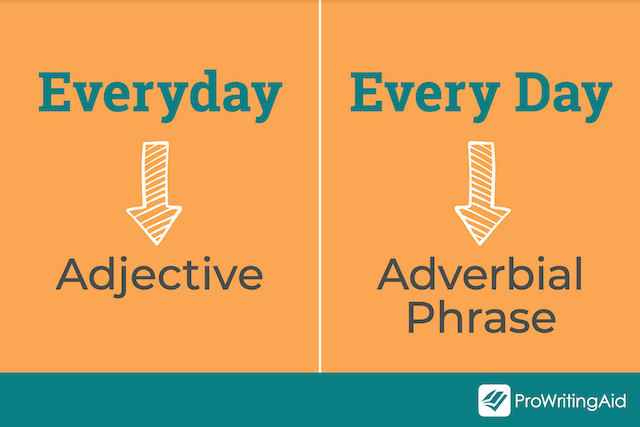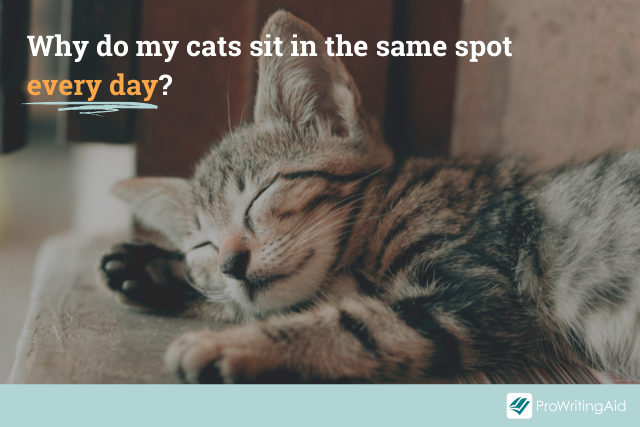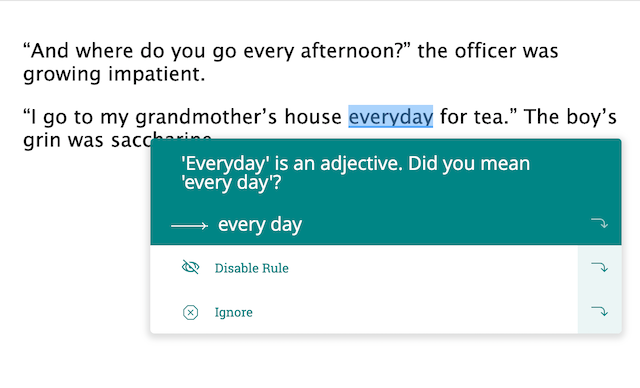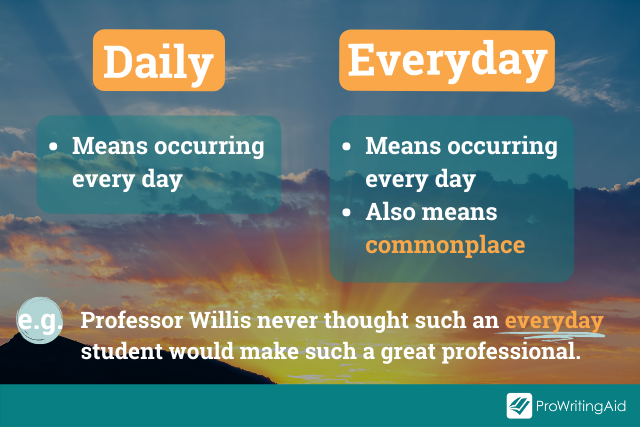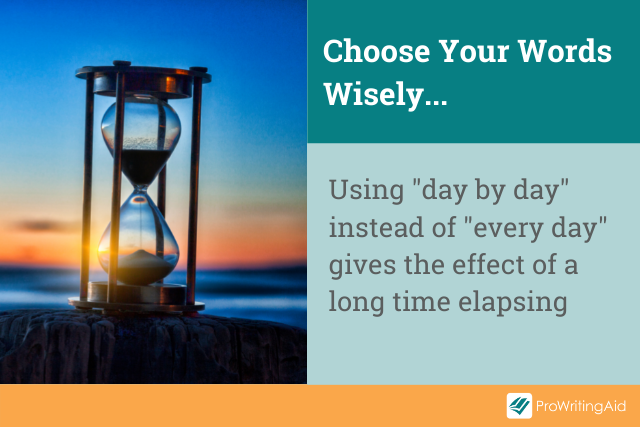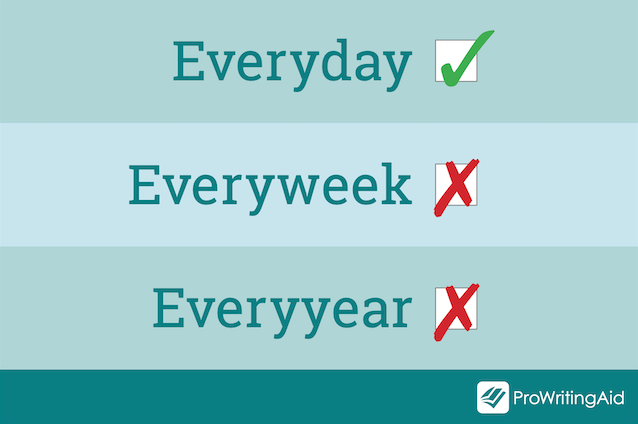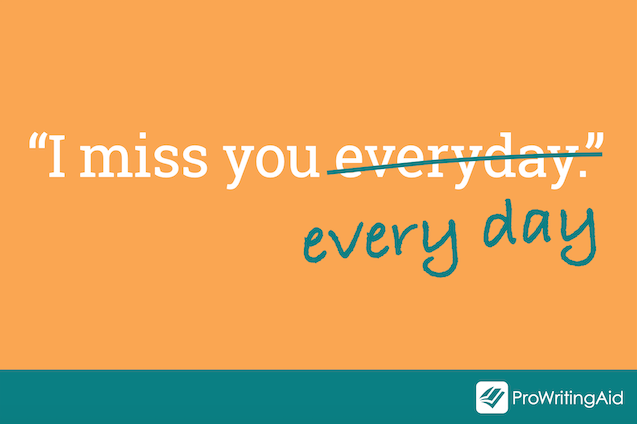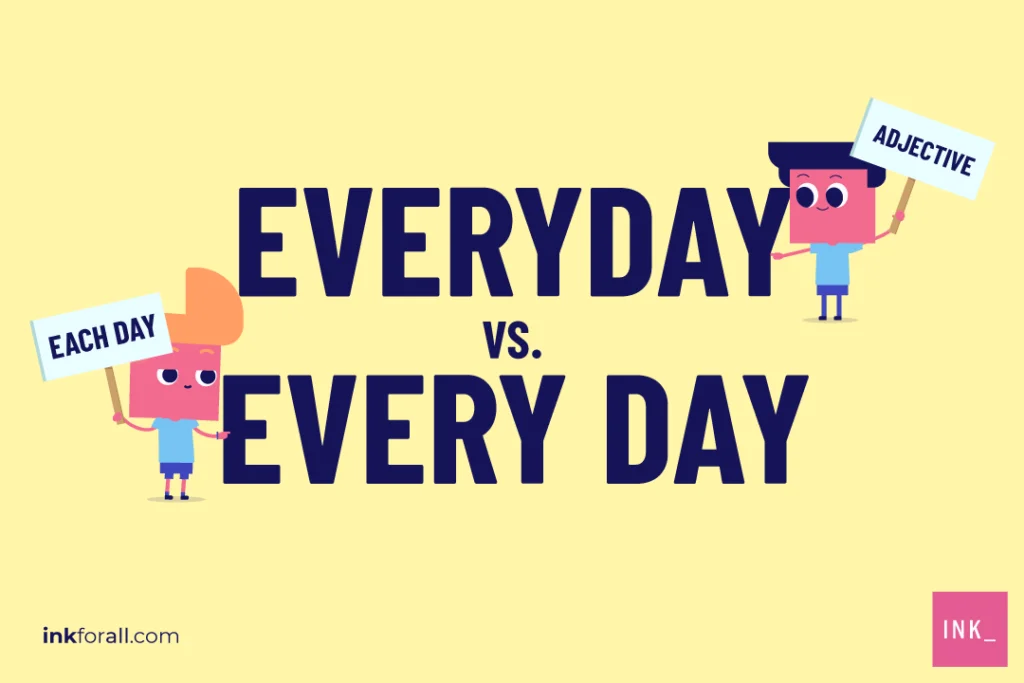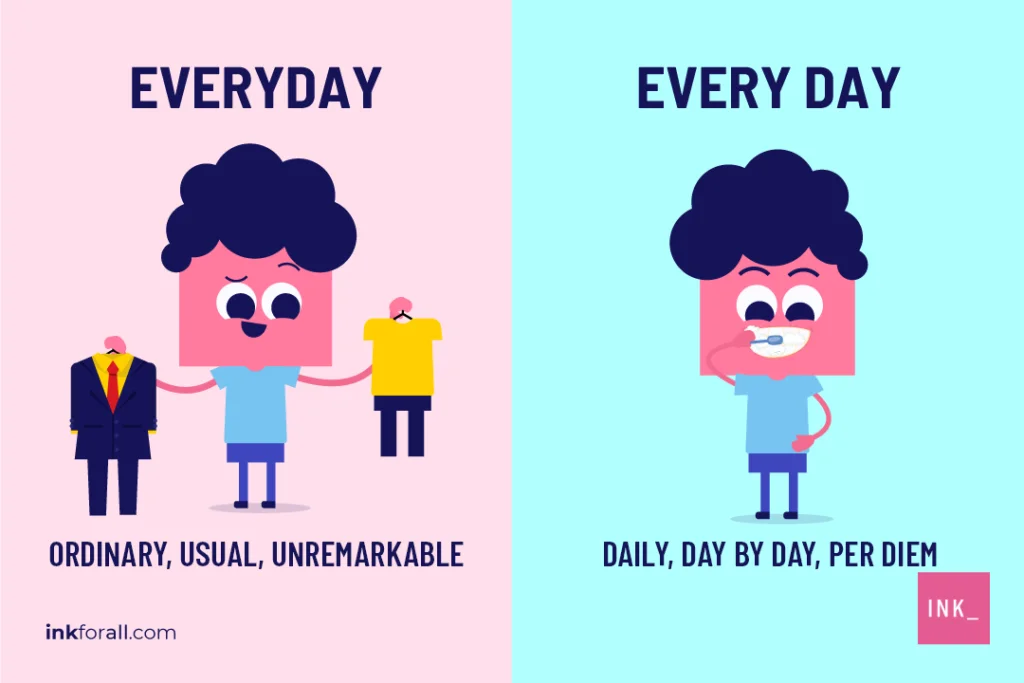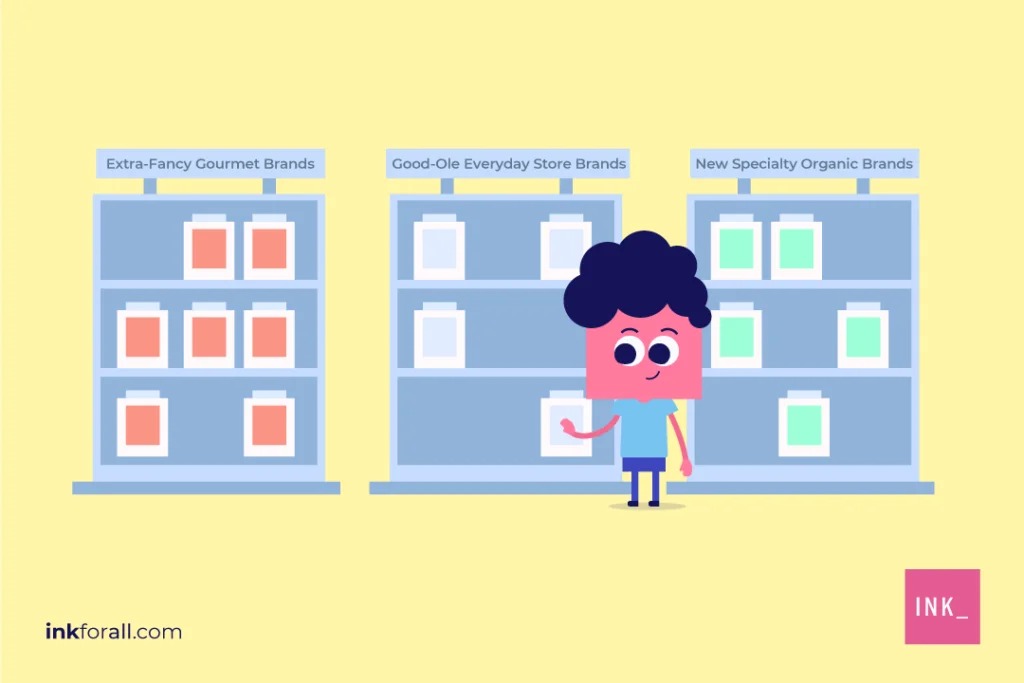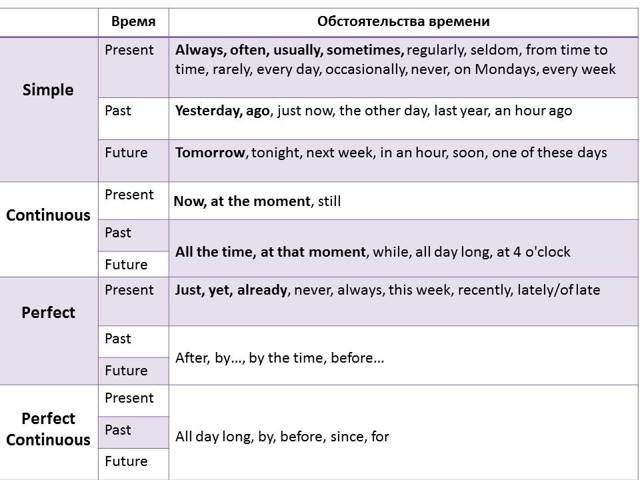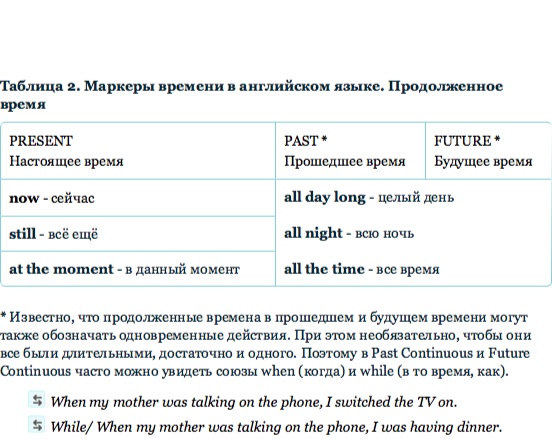Every day I’m shufflin’.
Not only are these classic song lyrics to LMFAO’s “Party Rock Anthem”—they’re also a great way to start this article. The question is, should it be “every day” or “everyday”?
As is so often the case in the English language, it depends. Here, for instance, “every day” as two separate words is the correct usage (kudos to LMFAO).
But in what cases would the proper usage be “everyday”? And how is one to know the difference? Let’s dig deeper.
Everyday vs Every Day: What’s the Difference?
Here’s the key distinction: “everyday” is an adjective, while “every day” is an adverbial phrase.
As you probably already know, adjectives describe nouns. Adverbial phrases are sets of multiple words that function as adverbs, which describe verbs.
So, in our first example, “every day” is correct, since it’s describing the verb shufflin’ (and we could all do a little more shufflin’, couldn’t we?). “Everyday” wouldn’t make sense here, because there’s no valid noun for it to describe.
To give another example, let’s stick with the music theme and consider Sly and the Family Stone’s hit song “Everyday People.” That one’s also correct as written, because “everyday” is an adjective describing the noun people. There’s not even a verb in there to distract us!
How to Use Everyday and Every Day Correctly
In the above examples, we mostly applied logic. But one might employ other methods to get this right.
Start by analyzing your sentence and determining what function “everyday” or “every day” serves. Is it an adjective or an adverbial phrase?
“Why do my cats sit in the same spot [everyday/every day]?”
To determine whether this is an adjective or adverbial phrase, we must first figure out what word is being modified. If it’s a noun, we’re dealing with an adjective; if it’s a verb, we’re dealing with an adverbial phrase.
The nouns in this sentence are “cat” and “spot,” while the verb is “sit.” So which is being modified? Well, let’s look at the sentence from a macro perspective. We’re trying to express that the cats sit in the same spot each day. Since this sentence is a little confusing as constructed, let’s try restructuring it into a statement rather than a question.
“[Everyday/Every day] my cats sit in the same spot.”
Sometimes restructuring is an excellent way to clarify. Here especially our decision becomes clearer. The phrase is modifying the verb “sit,” therefore, we should use the adverbial phrase “every day.” Thus, the sentences read:
- “Every day my cats sit in the same spot”
- “Why do my cats sit in the same spot every day?”
Now let’s try another sentence:
“Your [everyday/every day] worries melt away when you sing karaoke.”
First off, that sentiment is so true. Second, let’s figure out what word is being modified. In one way, this sentence is easier than the last. Since our word comes just before the word “worries”—in this sentence, “worries” is a noun—we should use “everyday.”
Thus, the sentence reads:
“Your everyday worries melt away when you sing karaoke.”
Don’t get too tripped up by the similar meanings of the word and phrase. Though “every day,” describes worries that people have each day, the word “everyday” means the same. Therefore, it’s most important to identify what’s being described—noun or verb.
And now to get really tricky, let’s try a sentence with two instances of “everyday” and “every day”:
“If I have to make this hike [everyday/every day], I think I’ll settle for a more [everyday/every day] set of shoes.”
In the sentence’s first clause, we’re clearly modifying the verb “make,” not the noun “hike.” After all, if we restructure the sentence to, “Every day I make this hike,” it makes sense. If we restructure it to “Everyday hike I make,” it wouldn’t make sense. Therefore, “every day” is the correct choice.
In the sentence’s second clause, the word being modified is the noun “shoes.” We really don’t even need to restructure. Therefore, the correct word is “everyday.” So our final sentence should read…
“If I have to make this hike every day, I think I’ll settle for a more everyday set of shoes.”
There you have it!
How to Remember the Difference
It’s easy to use the wrong word when you’re in the flow of writing. With ProWritingAid, you can be sure you use the right word every time.
The editor will tell you if you’ve used every day when you should have used everyday, and vice versa:
You can correct this and hundreds of other everyday writing errors (see what I did there?) with ProWritingAid.
Can You Start a Sentence with “Every Day” or “Everyday”?
Sure, so long as the sentence still follows the rules we’ve laid out here. A few examples of “everyday”:
- Everyday players get fatigued faster than professional players.
- Everyday events like this never make the news.
- Everyday heroes like you deserve more attention!
The same goes for “every day.” Some more examples:
- Every day I have the blues.
- Every day is a gift.
- Every day that dog barks at me!
You might even try throwing both in one sentence, just to be tricky.
- Everyday concerns like these shouldn’t haunt me every day.
- Every day you tell me about these everyday issues. When are you going to find help?
- Everyday fruits and vegetables, like bananas and carrots, should be eaten every day.
When to Use Everyday and Every Day: Common Examples
Looking for a specific example of when to use every day and everyday? We’ve got you covered. Find the answers to some of the most common questions below.
Is There Any Difference Between “Daily” and “Everyday”?
Glad you asked. Yes!
Some may think “daily” and “everyday” are synonyms, but they aren’t quite the same in every instance.
“Daily” pretty much means the same thing every time: occurring every day. “Everyday” might mean the same (“everyday delivery,” for instance), but it also means “commonplace.” Take this sentence, for example:
“Professor Willis never thought such an everyday student would make such a great professional.”
For many, such differences might seem unimportant. But for writers like you and I, who need the exact right word for every instance, it’s important to learn these distinctions. Consider the context of the sentence you’re writing, then use the word that most accurately fits your description.
What Is the Difference Between “Every Day” and “Day by Day”?
This is another subtle difference, but one that should prove important. “Every day” of course means each day throughout a duration. “Day by day” is a more archaic phrase, and therefore one you won’t hear quite as often. It refers more to a tedious passage of time. Here are some examples:
- Day by day, Ronald’s condition worsens. I fear we may have to close McDonald’s.
- Things are bad now, but they’ll get better, day by day.
- Freshman year was tough, but day by day, Wally soldiered on.
As you can see, substituting the phrase “every day” in any of these sentences loses the effect of a long time elapsing. If you want that eternity-passing-slowly sort of feeling, opt for “day by day.”
Why Is “Everyday” a Single Word and Not “Every Week” and “Every Year”?
This is a question many writers ask, and it’s a good one. I’ve never seen the words “everyweek” or “everyyear,” have you? I’m guessing not, because my spellchecker is furious at me right now.
The reason is, of course, that “every week” and “every year” are analogous to “every day,” not “everyday.” These too are verbal phrases, so they modify verbs. Since “everyday” is an adjective, it modifies nouns. Consider these sentences:
- Ellie goes to the doctor every year, though she doesn’t enjoy it.
- Leslie plays poker every week. (She’s one of the dogs in the famous picture.)
- I practice singing Bruce Springsteen’s “Santa Claus is Coming to Town” every week so I can sing it really well at my Christmas party every year.
(That last example may or may not be autobiographical.)
There’s rarely any need to combine these adverbial phrases into one word. However, if you really want to turn “every week” or “every year” into an adjective, make sure you use a hyphen.
- These every-week tests are killing me.
- Hey, we should turn this into an every-year vacation destination.
Why Is “Everyday/Every Day” One or Two Words But “Every Night” is Always Two?
As noted, “everyday” is a word that confuses many people because it’s so similar to an existing verbal phrase. Therefore, many people expect it to have analogous meaning. The answer is very similar to the previous question.
“Every night” makes sense as a phrase because it basically means each night. For example…
“Every night I turn into a werewolf. Please don’t tell my mom.”
If we combined this verbal phrase into a single adjective, it would need some new meaning that we don’t yet have. After all, “everyday” means commonplace, so what would “everynight” mean? I suppose you could use the hyphen again…
“My werewolf transformation is an every-night affair.”
But that usually comes out a little awkward. “Every night” is almost always best.
Would You Say, “I Miss You Every Day” or “I Miss You Everyday”?
Let’s restructure this sentence for help in determining what word is being modified.
“[Everyday/every day] I miss you.”
Which word is being modified: “miss” or “you”? It’s the former, since the meaning of the sentence is essentially “each day I miss you.” It’s clearly not the latter, since we’re not implying the “you” in this sentence is commonplace.
So, the correct constructions are:
- “Every day I miss you.”
- “I miss you every day.”
What Does “All Day, Every Day” Mean?
This is a common idiom that’s kind of redundant, yet admittedly fun to say. It’s usually used to underscore the consistency of a person’s work ethic, like in the following examples:
- All day, every day, Steph Curry plays his heart out.
- Listen, kid. You just gotta put your head down and work hard, all day, every day.
- Question: “Will you be here tomorrow?” Answer: “All day, every day.”
Just make sure to avoid writing “all day, everyday,” because as you probably know, that’s incorrect. That phrase would suggest the day is mundane all the time—or something. It clearly doesn’t make much sense, so don’t do it!
What Is the Difference Between “Every Day” and “Every Single Day”?
Honestly, the latter phrase is a little superfluous. “Single” isn’t really necessary, since it’s an extra word that doesn’t add much meaning to the phrase. However, “every single day” is used colloquially, especially when people are trying to make a point. Try keeping it in dialogue, like in the following examples:
- “Every single day you ask me that question. When is it going to end!?”
- “Do you still think about that moment? Because I do. Every. Single. Day.”
- “Look, I’m sure Bob is fine. It’s not like he gets abducted by aliens every single day, right? It just happens a few times a year.”
What Is the Difference Between “Everyday”/“Every Day” and “Anybody”/“Any Body”?
“Anybody” is a pronoun that simply means “anyone,” whereas “any body” are two distinct words. Unlike “every day,” “any body” is not an adverbial phrase.
If you’re unsure of whether to use “anybody” or “any body,” try substituting the word “anyone.” If the sentence still makes sense, “anybody” is correct. If it doesn’t, “any body” might be correct. For instance:
“Did [anybody/any body] hear what I just said?”
Let’s substitute with the synonym “anyone”:
“Did anyone hear what I just said?”
That makes perfect sense, so “anybody” is correct. And never forget: context matters. Just look at this example:
“I didn’t see [anybody/any body] at the ice cream stand. Did you?”
Using “any body” in this sentence implies someone was murdered at the ice cream stand, and then their body was hauled away. Probably not what the author meant.
In Conclusion
We hope this article helps you identify when it’s correct to use “every day” and “everyday.” For those gray areas, or if you’d just prefer to focus on writing, try ProWritingAid’s grammar reports. Not only will it help you select the correct everyday or every day—it’ll also catch potential problems like confused words, missing punctuation, and sentence fragments.
Now get out there and write, writer!
Now is a wonderful time to be a copywriter. Download this free book to learn how:
This guide breaks down the three essential steps you must take if you think copywriting is the career for you.

Main Everyday vs. Every day Takeaways:
- Both everyday and every day are correct, but they mean different things.
- When it’s one word, everyday is an adjective. It describes something that is commonplace or ordinary.
- When it’s two words, every day is the same as saying “each day”. It refers to something that happens daily.
Is Everyday one or two Words?
If you’re trying to say that something is commonplace, then it’s one word. Opt for everyday. Conversely, if you’re trying to describe something that happens daily, then it’s two words. Go for every day. Here’s a quick trick to help you remember the difference and decide which word you need: If you can replace the word with the phrase “each day”, then you need the two-word version of every day. This one always refers to frequency.
Which is Correct: Everyday or Every day?
Both words are correct, but they are not interchangeable. On one hand, everyday is an adjective and means ordinary, average, or commonplace. On the other hand, every day is usually part of an adverbial phrase. It means daily or describes something you do as part of a daily routine.
Every day is a noun phrase that means “each day.”
Everyday functions as an adjective. It describes an action or item that’s commonplace or something that you do as a matter of habit.
Everyday vs. Every day: Compound Word vs. Noun Phrase
If you’re struggling with choosing between everyday and every day, you’re not alone. Everyday vs. every day is just as confusing as a lot vs. alot and anytime vs. any time.
They look the same; they sound the same, so why aren’t they the same?
Visually, the only difference between these two words is a small space. This is what’s responsible for most of the confusion between everyday and every day.
However, grammatically, the difference is a lot larger. It’s the difference between a word and a phrase.
- Everyday is compound word made up of two words.
- Every day is not a compound word. Instead, it’s a simple phrase made up of two words.
Because I love food, I’ll use cheese and bread. Let’s make every the cheese and day the bread.
You can enjoy each food individually. You don’t have to eat together because they work just fine on their own. Similarly, every is a word that functions just fine on its own without day.
But, you can eat them together. Maybe as a quick snack or part of a cheese plate with other items like fruit and cold cuts. In the same way, the individual words every and day can work together to make the phrase everydayas part of a sentence.
What’s more, when you meld cheese and bread together with heat, the combination creates something entirely different: a grilled cheese. This is more similar to fusing everyand day together to form the compound word everyday.
Beyond Everyday: Other Compound Word Examples
For a non-food example, black and bird are two words that can stand alone. Or, you can put them together to form the word blackbird.
Watch Out!Some compound words require a hyphen, but everyday does not.
In each of these examples, the joined words create a different meaning compared to when the words were separated. The same idea applies when using everyday or every day.
Building on the concept of compound words, we see that “every” and “day” can indeed stand alone. But you can combine them into a single word with an entirely different meaning.
The Best Trick for When to use Which Word
The easiest way to keep things straight is to ask yourself whether you’re talking about each day or something commonplace or average.
So, if you can replace everyday or every day with “each day,” you know that you should go with the two-word option.
As for everyday, remember that it’s an adjective. As such, it will almost always come before a noun. We use everyday to describe something ordinary. You can also swap it with its synonyms such as“regular,” “daily,” “familiar,” “conventional,” or “unremarkable.”
Everyday vs. Every day: How to use Them in a Sentence
Examples of “Everyday” in a Sentence
Examples of “Every day” in a Sentence
Use every day when you’re referring to something that happens each day. You’re most likely going to use every day to talk about a daily occurrence. This may be something everyone frequently does, or it could be an action that’s a permanent part of your routine.
So remember: Everyday is an adjective that describes something ordinary, average, or mundane. The phrase every day is the same as “each day.” And the rest, as they say, is gravy.
Is Everyday Written Together? Test Your Skills!
Everyday Question #1
A. Noun
B. Adjective
C. Adverb
D. Verb
Correct!
Wrong!
The answer is B. “Everyday” is an adjective that describes an action or item that’s commonplace or something that you do as a matter of habit.
Every day Question #2
Correct!
Wrong!
The answer is FALSE. “Every day” is a noun phrase that means “each day.”
Everyday vs. Every day Question #3
A. Regular
B. Each day
C. Familiar
D. Conventional
Correct!
Wrong!
The answer is B. You can’t interchange “everyday” and “each day” in a sentence.
Everyday or Every day Question #4
A. She played the piano every day for a year.
B. She played the piano everyday for a year.
Correct!
Wrong!
The answer is A. Use “every day” when talking about something that happens each day.
Everyday vs. Every day Question #5
A. Auditions are an everyday affair for aspiring actors.
B. Auditions are an every day affair for aspiring actors.
Correct!
Wrong!
The answer is A. Use everyday when talking about something that is a regular occurrence.
Read More: Anytime Vs. Any Time: What’s The Correct Word To Use?
19.03.2019
Маркеры — это вспомогательные слова, которые представляют собой наречия и характеризуют времена в английском языке.
Их еще называют указателями времени, помощниками, подсказками, сигналами, спутниками или индикаторами. В предложении они играют роль обстоятельства времени.
Какое время обозначает, например, маркер since или already? Это маркеры времен группы Perfect (совершенное). Рассмотрим маркеры всех времен.
Маркеры времен группы Simple
| Present Simple | Past Simple | Future Simple |
| always — всегда | yesterday — вчера | tomorrow — завтра |
| often — часто | the day before yesterday — позавчера | the day after tomorrow — послезавтра |
| usually — обычно | just now — только что | tonight — сегодня вечером |
| sometimes — иногда | the other day — на днях | one of these days — на днях |
| regularly — постоянно | last week — на прошлой неделе | next week — на следующей неделе |
| seldom — изредка | last month — в прошлом месяце | next month — в следующем месяце |
| from time to time — время от времени | last year — в прошлом году | next year — в следующем году |
| rarely — редко | last decade — в прошлом десятилетии | in an hour — в течение часа |
| never — никогда | last century — в прошлом веке | in a minute — в течение минуты |
| every day — каждый день | an hour ago — час назад | later — позже |
| every week — каждую неделю | three hours ago — три часа назад | soon — скоро |
| every month — каждый месяц | two weeks ago — две недели назад | in (the) future — в будущем |
| every year — каждый год | in 1992 — в 1992 году | |
| on Mondays — по понедельникам | at 6 o’clock — в 6 часов | |
| at the weekend — на выходных | ||
| at weekends — по выходным | ||
| at 7 o’clock — в 7 часов |
Примеры
- Usually I wake up at 7 am. (Обычно, я просыпаюсь в 7 утра)
- I didn’t run yesterday. (Я не бегал вчера)
- I think I will watch this movie next week. (Я думаю, я посмотрю этот фильм на следующей неделе)
Маркеры времен группы Continuous
| Present Continuous/Progressive | Past или Future Continuous/Progressive |
| now — сейчас | all day long — целый день |
| still — всё ещё | all night long — всю ночь |
| at the moment — в данный момент | all the time — все время |
| at that moment — в тот момент | |
| while — в то время, как | |
| at 5 o’clock — в 5 часов |
Примеры
- We are having lunch now. (Мы сейчас обедаем)
- I was reading a book all day long. (Я читал книга весь день)
Маркеры времен группы Perfect
| Present Perfect | Past или Future Perfect |
| never — никогда | by… — к какому-либо времени |
| just — только что | by the time — к тому времени |
| always — всегда | before… — до… |
| yet — еще не (-), уже (?) | |
| already — уже (.) | |
| this week — на этой неделе | |
| lately/of late — за последнее время | |
| recently — недавно | |
| for ages — целую вечность | |
| ever — когда-либо |
Примеры
- I have never been to Spain. (Я никогда не был в Испании)
- The movie had finished by 7 pm. (Фильм закончился к 7 часам)
Маркеры времен группы Perfect Continuous
| Present/Past/Future Perfect Continuous |
| all day long — целый день |
| by — к… |
| before — до… |
| since — с… (какого-либо времени) |
| for — в течение… (какого-либо времени) |
Примеры
- We have been celebrating since noon. (Мы празднуем с обеда)
Слова-маркеры каждого времени в английском языке Ссылка на основную публикацию 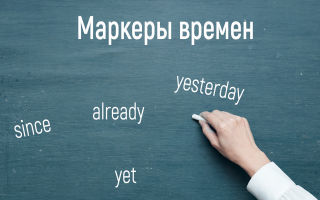

Слова-маркеры времени в английском языке
Основные указатели выделены
Обстоятельства времени («указатели») могут использоваться в различных комбинация и различных временах! Они лишь помогают нам предугадать нужную форму, но все равно очень важно прочувствовать логику. Просто о временах английского языка здесь.
Теперь рассмотрим примеры:
Present Simple
- Мы просто констатируем факт какого-либо события
- I listen to the music every day-я слушаю музыку каждый день
- I go to the cinema regularly -я хожу в кино регулярно
- They usually go away on holidays — они обычно уезжают во время отпуска
Past Simple
- Простое действие, произошедшее в прошлом
- I went to the swimming pool yesterday — я ходил в бассейн вчера
- Ana felt very happy last week — Анна чувствовала себя хорошо на прошлой неделе
- Last year I worked for a company in Norway — в прошлом году я работал в компании в Норвегии
Future Simple
- Простое действие, которое произойдет в будущем
- I will play tennis next week — я буду играть в теннис на следующей неделе.
- I’ll call back later — я перезвоню позже
- Maria will come one of these days — Мария приедет на днях
Present Continuous
- Время характеризуется определенной длительностью, а не просто фактом действия
- I am reading now — я сейчас читаю
- We are working at the moment — мы сейчас читаем
- He is singing still — он все еще поет(сейчас)
Past Continuous
- Длительное действие, которое происходило в прошлом
- He was watching tv when the telephone rang — он смотрел телевизор, когда телефон зазвонил
- We were playing tennis yesterday afternoon — Мы играли в теннис вчера после обеда
- She was sitting in the library from 2 till 6 yesterday — она сидела в библиотеке с 2-х до 6 вчера
Future Continuous
- Действие, которое будет происходить в будущем, именно будет длится какой-то промежуток времени
- I will be waiting for my friends at 9 o’clock tomorrow — я буду ждать своих друзей завтра в 9 часов
- She will be working all day long — она будет работать весь день
- I will be walking with my dog from 10 to 11 — Я буду гулять с моей собакой с 10 до 11
Present Perfect
- Совершенное время, но нам важен его результат в настоящем!
- I had just made a cake — я только-что приготовила пирог
- I have forgotten his name. – Я забыл его имя ( и не помню на данный момент)
- He has already passed exam — он уже сдал экзамен
Past and Future Perfect
- Эти времена используются для описания действия, которое уже закончилось к определенному моменту в прошлом или будущем.
- The bus had arrived by 8 o’clock — автобус прибыл к 3-м часам
- I will have graduated from the university by 2019 — я закончу университет к 2019
He won’t have finished arguing until you agree with him. – Он не прекратит спорить, пока ты с ним не согласишься.
Present Perfect Continuous, Past Perfect Continuous,Future Perfect Continuous
Выражает одно длительное время, завершенное перед наступлением другого. Не очень распространено в употреблении.
I have been waitingfor you for three hours -я ждал тебя 3 часа
I had been sleeping for three hours when they returned — Я проспал уже три часа, когда они вернулись.
We will have been working three hours when you come. – К тому времени, как ты придешь, мы уже будет работать в течение 3-х часов.
Маркеры времени а английском языке с таблицами и примерами
Времена английского глагола – основа грамматики этого языка. Многие сталкиваются с такой проблемой: вроде вызубрили правила английского языка, употребления и образования, а на практике все равно затрудняются определить, какое время нужно поставить.
Ключ к успеху – специальные слова-маркеры, которые подсказывают нам какое это время. Маркеры времени в английском языке – это слова, которые указывают на регулярность события или обозначают промежуток времени.
С каждым маркером используется только одно конкретное время.
Таблица 1.
Действие вообще: то, что происходит всегда / регулярно / обычно
| PRESENT Настоящее время | PASTПрошедшее время | FUTUREБудущее время |
| every day/ week/ monthкаждый день/ неделю/ месяц | yesterdayвчера | tomorrowзавтра |
| usuallyобычно | the day before yesterdayпозавчера | the day after tomorrowпослезавтра |
| sometimesиногда | last month*в прошлом месяце | next month*в следующем месяце |
| oftenчасто | two days ago2 дня назад | in two daysчерез 2 дня |
| seldom/ rarelyредко | the other day**на днях | one of these days**на днях |
| from time to timeвремя от времени |
* Хотя по-русски мы говорим «В прошлом месяце», «На следующей неделе», в английском языке перед словами next и last предлоги ставить нельзя.
** Обратите внимание, что «на днях» для прошедшего и будущего времени переводится по-разному. Ни в коем случае нельзя их менять местами и употреблять одно вместо другого.
Скачать таблицу: Простое время — маркеры времени.
Продолженные времена —Continuous (Progressive) tenses
Present Continuous (Progressive) tense —действие в развитии, незаконченное, происходящее в момент речи.
Past Continuous (Progressive) tense —длительное действие, начавшееся до определенного момента в прошлом и все еще совершающееся в тот момент. Момент может быть указан обозначениями времени.
Future Continuous (Progressive) tense —длительное действие, которое будет происходить в какой-то момент или период времени в будущем. Момент совершения действия может быть указан обозначениями времени.
Таблица 2.
| PRESENT Настоящее время | PAST *Прошедшее время | FUTURE *Будущее время |
| now — сейчас |
|
|
| still — всё ещё | ||
| at the moment — в данный момент |
* Известно, что продолженные времена в прошедшем и будущем времени могут также обозначать
одновременные действия. При этом необязательно, чтобы они все были длительными, достаточно и одного. Поэтому в Past Continuous и Future Continuous часто можно увидеть союзы when (когда) и while (в то время, как).
- When my mother was talking on the phone, I switched the TV on.
- While/ When my mother was talking on the phone, I was having dinner.
Завершенные времена — Perfect tenses
- Запомните эти определения завершенного времени:
- Present Perfect tense —действие, уже совершившееся; говорящий обращает внимание на результат, вытекающий из действия к моменту речи.
- Past Perfect tense —действие или состояние, завершившееся до определенного момента в прошлом.
- Future Perfect tense —действие, которое будет завершено до определенного момента в будущем.
Таблица 3.
| PRESENT *Настоящее время | PASTПрошедшее время | FUTUREБудущее время |
| never — никогда |
by — к… / до…
before — до… / прежде чем… / перед тем… |
|
| just — только что | ||
| always** — всегда | ||
| yet — еще не (-), уже (?) | ||
| already*** — уже (.) | ||
| this week — на этой неделе | ||
| lately / of late — за последнее время | ||
| recently — недавно |
* В Present Perfect для обозначения «за какой-то промежуток времени» используются целых 6 равнозначных выражений: over the last/ past two weeks, in the last/ past two weeks, during the last/ past two weeks.
** Always может использоваться также с простыми временами, но с разницей в значении. Возьмем, к примеру, Present Simple.
- We always book tickets in advance.
- We have always booked tickets in advance.
- *** Если говорить проще, то yet – это вопросительная и отрицательная форма от already.
- The twins have already arrived.
- The twins haven’t arrived yet.
- Have the twins arrived yet?
Обратите внимание, что already ставится непосредственно рядом с глаголом, а yet– только в конце предложения.
Хотя можно часто встретить already и в вопросительных предложениях:
- Have they already gone to Spain?
Продолженные завершенные времена —Perfect Continuous tenses
- Вспоминаем определения, после чего изучим маркеры этого времени:
- Present Perfect Continuous tense —действие или состояние, начавшееся до настоящего момента, длившееся в течение некоторого периода времени и продолжающееся в момент речи или закончившееся непосредственно перед моментом речи.
- Past Perfect Continuous tense —выражает длительное действие или состояние, которое началось ранее другого действия или состояния, выражаемого обычно формой Past Simple, и при наступлении этого действия или состояния все еще некоторое время продолжалось или было прервано.
- Future Perfect Continuous tense —действие или состояние, которое начнется до определенного момента в будущем и будет продолжаться вплоть до этого момента (либо продолжающееся в этот момент), с указанием всего периода действия или состояния.
Таблица 4.
| PRESENT Настоящее время | PASTПрошедшее время | FUTUREБудущее время |
by the time — к тому времени, когда… before — до / раньше / прежде чем…
|
* Обратите внимание, что all day long в настоящем времени требует Present Perfect Continuous, а не просто Present Continuous, несмотря на то, что действие происходит в данный момент.
- She has been studying French (is studying) all day long.
Почему так важно запоминать временные маркеры (time markers)
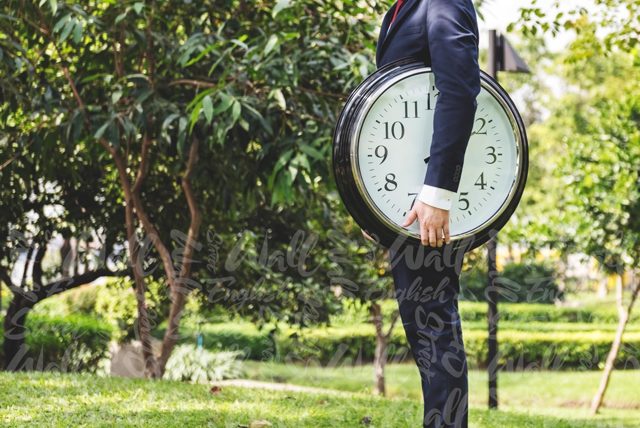
Почему так важно запоминать временные маркеры (time markers)
Изучение английского языка у большинства из нас ассоциируется именно с временами. И это неудивительно. Ведь наша устная и письменная речь неразрывна с ними.
В основе изучения времен лежат временные маркеры — слова-помощники, которые подсказывают нам, какое из времен стоит использовать. Именно их мы и рассмотрим в данной статье.
Основные правила очень легки: вам просто следует запомнить маркеры и соответствующие им времена. Однако, некоторые студенты сталкиваются с небольшими трудностями, когда в одном предложении встречают сразу несколько временных указателей или маркер не соответствует контексту. Для таких случаев мы приготовили для вас несколько подсказок:
- Найдите все временные маркеры в предложении.
- Вспомните, какому из времен соответствует маркер (таблица с маркерами и временами расположена ниже).
- Если в предложении используется несколько маркеров, относящихся к разным временам, то следующими подсказками для вас станет сам контекст предложения и сопутствующие действие слова.
| Время | Временные маркеры | Примеры |
| Present simple | Every day — каждый день; every month — каждый месяц;
|
Kate runs 5 km. every day. — Кейт пробегает 5 км. каждый день. |
| John always reads books in public transport. — Джон всегда читает книги в общественном транспорте. | ||
| I sometimes go to the park on weekend. — Иногда я хожу в парк по выходным. | ||
| Past simple | Yesterday — вчера;
|
Olga was in Australia last month. — В прошлом месяце Ольга была в Австралии. |
| Kate lived in Paris in 2010. — В 2010 Кейт жила в Париже. | ||
| Future simple | Tomorrow — завтра;
|
Jessica will go to the theatre in 3 days. — Джессика пойдет в театр через 3 дня. |
| Daniel will buy a big house someday. — Однажды Даниэль купит большой дом. | ||
| Elena will finish her project 4 days from now. — Елена закончит проект через 4 дня. | ||
| Present Continuous | Now — сейчас; right now — прямо сейчас; at this moment — вданный момент. |
He is cleaning the apartment right now. — Он убирается в квартире прямо сейчас. |
| Future Continuous | At this time tomorrow — в это время завтра. | At this time tomorrow, I shall be presenting my ideas. — В это время завтра я буду выступать с речью. |
| Past Continuous | at Х o’clock — в Х часов; at Х a.m. / p.m.— в Х времени утра / вечера; at present — в данное время; all night long — целую ночь; at lunchtime — в обеденное время; at sunset — на закате; from Х till Х — с Х до Х; for Х hours — в течение Х часов. |
I was reading the book you gave me all night long. — Я читал книгу, которую ты мне дал, всю ночь.
Present Perfect
For — в течение;
- since — с;
- yet — еще;
- never — никогда;
- always — всегда (для обозначения действия, которое началось в прошлом и длится до сих пор);
- so far — пока что;
- Х times — Х раз ;
- many times — много раз;
- lately — в последнее время;
- recently — недавно;
- already — уже.
Oleg has has visited Miami many times. — Олег был в Майами много раз.
Sam has been in the gym for three hours. — Сэм был в спортзале 3 часа.
Sam hasn’t been here since 1999. — Сэм не был тут с 1999.
I have already cooked dinner for guests. — Я уже приготовила ужин для гостей.
Present perfect Continuous
For — в течение;
- since — с;
- lately — в последнее время;
- recently — недавно.
Vika has been sleeping for four hours. — Вика спала в течение 4-х часов.
Past perfect
if – если;
- by – к;
- hardly… when / no sooner…than – как только, едва, не успел я;
- after – после;
- earlier – ранее, before – до;
- first – сперва;
- when – когда;
- just – только что;
- already – уже;
- yet – уже, еще не.
- since — с того времени;
- before — перед
- then — тогда, затем, потом
- as — так как, поскольку
- Сложноподчиненные предложения относят в отдельную категорию при изучении маркеров, потому что, как правило, такие конструкции содержат сразу несколько времен.
I hadn’t booked the flight yet when I received visa. — Я еще не купил билеты, когда получил визу.
Past perfect сontinuous
For — в течение, в продолжении;
He was sad at the party as he had had been working a lot. — Он был уставшим на вечеринке, так как много работал.
| Временной маркер | Время в придаточном предложении | Время в главном предложении | Пример |
| While — в то время как, пока | Past Continuous | Past simple (короткое действие) | While Kate was cooking, bird flew in the kitchen. — Пока Кейт готовила, на кухню залетела птица. |
| Past Continuous (действия происходят одновременно) | While Daniel was playing computer games, Elena was cleaning the apartment. — Пока Даниэль играл в компьютерные игры, Елена убирала квартиру | ||
| Present Continuous | Future Continuous | While John is working tomorrow, his mother will be shopping. — Пока Джон будет работать завтра, его мама будет ходить по магазинам. | |
| Before — до/ перед тем как | Present simple | Future simple | Before I go to work I shall go to the gym. — Перед тем как пойти на работу, я зайду в спортзал. |
| Past simple | Past simple or past perfect | Before Anna went to the airport, she (had gone) went for a walk with her dog. — Перед тем как поехать в аэропорт, Анна пошла на прогулку с собакой. | |
| After — после | Present simple | Future simple | After I buy a new car, I’ll go to Europe. — После того, как я куплю себе машину, я отправлюсь в Европу. |
| Past simple or past perfect | Past simple | After I bought [had bought] a new car, I went to Europe. — После того, как я купила новую машину, я уехала в Европу. | |
| When — когда | Present simple | Future simple | When John finishes this semester, he will take a trip to France. |
| Past simple | Past simple | When the sun rose, Oleg went to run. — Когда встало солнце, Олег пошел на пробежку. | |
| Past Continuous | When the sun rose, Oleg was working. — Когда встало солнце, Олег работал. | ||
| Past perfect | When the sun rose, Oleg had already woken up. — Когда встало солнце, Олег уже встал. | ||
| Past perfect Continuous | When the sun rose, Oleg had been already driving for two hours. — Когда встало солнце, Олег уже ехал в течение двух часов. | ||
| Until — до тех пор, пока | Present simple | Simple future | Until Jack signs a contract he won’t be able do it. — До тех пор пока Джек не подпишет контракт, он не сможет сделать этого. |
| Past simple | Past perfect | Until Jack signed a contract he hadn’t realized the situation. — До тех пор пока Джек не подписал контракт, он не осознавал всей ситуации. | |
| As soon as — как только | Present simple | Future simple | As soon as I get promotion, I will buy a car. — Как только меня продвинут по работе, я куплю машину. |
| Past simple | Past simple | As soon as I got promotion, I bought a car. — Как только меня продвинули по работе, я купил машину. | |
| Whenever — всякий раз | Present simple | Present simple | Whenever Dasha goes to the park, he always takes a lot of pictures for Instagram. — Каждый раз когда Даша ходит в парк, она делает много фотографий для Инстаграм. |
| The first time — в первый раз/ впервые | Past simple | Past simple | The first time that Elena visited Melbourne, she went to the beach. — Когда Елена была впервые в Мельбурне, она пошла на пляж. |
| The last time — в последний раз | Past simple | Past simple | The last time that Elena visited Melbourne, she went to the beach. — Когда Елена была последний раз в Мельбурне, она пошла на пляж. |
| The next time — в следующий раз | Present simple | Future simple | The next time that Elena visits Melbourne, she will go to the beach. — Когда Елена будет в Мельбурне, она пойдет на пляж. |
| By the time — к тому времени | Present simple | Future perfect | By the time the movie starts, I shall fall asleep. — К тому времени, как начнется фильм, я усну. |
| Past simple | Past perfect | By the time Rhianna finished her speech, most of the guests had left. — К тому моменту, как Риана закончила свое выступление, большинство гостей ушло. | |
| Since (time) — с (время) | Past simple | Present perfect | Kate has been happy since she moved to the new apartment. — Кейт была счастлива с того момента, как переехала в новую квартиру. |
В данной статье мы затронули практически все временные маркеры английского языка. Выучив их, вы без проблем сможете использовать нужное время в своей устной или письменной речи.
Но как вы уже могли догадаться, не все так просто: бывают случаи, когда указатели не соответствуют времени.
В такой ситуации важно просто один раз разобраться со всеми правилами, и в дальнейшем вы уже не будете сталкиваться с подобными проблемами.
Английский язык – маркеры времен

Изучая иностранный, многие сталкивались с трудностями при освоении времен. Даже изучив все формы, грамматические тонкости, можно сомневаться в правильности употребления и понимания той или иной словесной конструкции.
Сегодня с вами изучим тему: «Английский язык – маркеры времен», мы расскажем, что это за слова, как их использовать. Тема совершенно несложная, единственное, что потребуется от вас – это свободное время, немного терпения и усидчивость.
Слова подсказки времен английского языка
В инглиш есть специальные слова-подсказки, которые употребляются с определенным временем. Это time markers или указатели времен. Они определяют логику, действие и его временной промежуток.
Каждый маркер обычно применяется в одном времени. Запомнив эти слова, вы сможете с легкостью общаться, писать, не опасаясь, что допустите ошибку.
Маркеры времен английского языка
Называют эти слова по-разному – указатели, подсказки, спутники, маркеры временных промежутков. Суть от этого не меняется. Чтобы научиться грамотно употреблять времена, правильно понимать текст (устный, письменный) или собеседника, рекомендуется выучить их наизусть.
Указатели Present Simple
Применяются для настоящего времени, обозначают действия, которые происходят регулярно, то есть повторяются. Обычно используются, что описать режим дня, расписание, привычки:
- usually – обычно.
- always – всегда.
- from time to time – время от времени.
- often – часто.
- sometimes – иногда.
- regularly– постоянно.
- never – никогда.
- every day – каждый день.
- every week/month/year– каждую неделю/месяц/год.
- Например: I usually have lunch at 2 o’clock (Обычно я обедаю в 2 часа).
- Маркеры Past Simple
- Используются для уже состоявшихся действий:
- yesterday – вчера.
- the other day – на днях.
- just now – только что.
- last month – в прошлом месяце.
- last month – на прошлой неделе.
- Например: Yesterday we went to the theater.
- Слова-спутники английского времени Future Simple
- Обозначают действие, которое только планируется, то есть определяют будущее:
- tomorrow – завтра.
- the day after tomorrow – послезавтра.
- tonight – вечером.
- next year/month – в следующем году/месяце.
Next year we will go to the sea (В следующем году мы поедем на море).
Маркеры Present Continuous
Используются для действий, происходящих в настоящем моменте, здесь и сейчас:
- Now – сейчас.
- At the moment – в данный момент.
- Still – все еще.
Now we go to visit mom (Сейчас мы пойдем в гости к маме).
На простых примерах мы рассмотрели некоторые времена в английском языке со словами подсказками, а остальные вы легко найдете на просторах интернета, они есть в свободном бесплатном доступе.
Курсы в «Юнави»
В английском много времен, если вы хотите виртуозно владеть ими, правильно употреблять все конструкции и формы, приходите к нам на обучение.
Под руководством наших опытных преподавателей вы изучите досконально маркеры времен английского языка.
У нас большой выбор курсов и программ. К каждому ученику мы применяем индивидуальный подход, учитываем уровень знаний, склонность к обучению.
Курсы в школе иностранных языков «Юнави» – это быстрый путь к покорению новых вершин и достижению целей!
www.sva39.ru © Создание сопровождение и продвижение сайтов.
индикаторы английских времен
Раздаточный материал к уроку.
Индикаторы английских времен.
Каждая группа английских времен имеет свои определяющие слова — индикаторы, которые подсказывают, помогают понять, какое время использовать в том или ином случае. И хотя такие слова не позволяют со стопроцентной достоверностью определить, какое время будет самым правильным в данном случае, они все же упрощают задачу выбора.
Индикаторы выражают период или время, в котором происходит действие.
Например:yesterday (вчера) указывает на simple pastevery day (каждый день) указывает на simple presenttomorrow (завтра) указывает на simple futurewhile (в то время, как) указывает на past continuousnow (сейчас) указывает на present continuous
В английском языке много таких слов-индикаторов, выражающих какой-либо момент или период во времени, и многие из них указывают на то, произошло действие в прошлом, или только произойдет в будущем, и они могут подсказывать, время какой группы следует использовать.
Если научиться распознавать такие слова, то это очень поможет при выборе времен. Однако следует учитывать, что некоторые такие слова могут использоваться в более, чем одной группе времен. Ниже приводится таблица, содержащая основные индикаторы, и показывающая, на какое время они указывают.
| Past (прошедшее время) | Present (настоящее время) | Future (будущее время) | |
| Simple / Indefinite | Simple Past | Simple Present | Simple Future |
| yesterday – вчераlast year / month / etc – в прошлом году / месяце / и т.д.one year / month ago – один год / месяц назад | every morning / day / etc. – каждое утро / каждый день / и т.д.always – всегдаusually – обычноfrequently / often – частоsometimes – иногда | tomorrow – завтраtonight – сегодня вечеромnext week / month / etc. – на следующей неделе / в следующем месяце / и т.д.soon – скороin the future – в будущем | |
| Continuous / Progressive | Past Continuous | Present Continuous | Future Continuous |
| while – в то время, какwhen – когда | now – сейчасright now – прямо сейчасthis week / minute / etc. – на этой неделе / в эту минуту / и т.д. | when – когдаafter – послеas soon as – как толькоbefore – прежде | |
| Perfect | Past Perfect | Present Perfect | Future Perfect |
| before – раньшеalready – ужеby the time – к тому времениuntil then / last week / etc. – до этого момента / до прошлой недели / и т.д.after – после | until now – до настоящего моментаsince – с тех порever – когда-либоnever – никогдаmany times / weeks / years / etc. – много раз / много недель / много лет / и т.д.for three hours / minutes / etc. – в течение трех часов / минут / и т.д. | by the time you go (somewhere) – к тому времени, как ты пойдешь (куда-либо)by the time you do (something) – к тому времени, как ты сделаешь (что-либо)already – уже | |
| Perfect Continuous / Perfect Progressive | Past Perfect Continuous | Present Perfect Continuous | Future Perfect Continuous |
| before – раньшеfor one week / hour / etc. – в течение одной недели / одного часа / и т.д.since – с тех пор | for the past year / month / etc. – в течение последнего года / месяца / и т.д.for the last 2 months / weeks / etc. – в течение последних 2 месяцев / недель / и т.д.up to now – до настоящего времениsince – с тех пор | by the time – к тому времениfor ten days / weeks / etc. – в течение десяти дней / недель / и т.д.by – к (какому-либо моменту) |
Простое время в английском языке — лучший способ рассказать собеседнику о своих привычках и предпочтениях, о том, что мы умеем делать или делаем каждый день. Это одно из самых часто встречающихся времен в повседневной речи, поэтому важно понять и изучить его с самого начала.
Сегодня поговорим о том, что такое Present Simple Tense, распространенные случаи употребления, узнаем основные правила образования Present Simple, какие существуют маркеры времени и рассмотрим примеры предложений.
Что такое Present Simple?
Это простое настоящее время, обозначающее действие в самом широком смысле этого слова. Одна из самых распространенных и простых форм в английском языке для описания действий.
Действия могут быть связаны с привычками, хобби, ежедневным событием вроде подъема по утрам или чем-то, что случается регулярно.
Как образуется Present Simple?
Нет ничего проще, чем поставить глагол в форму Present Simple. Для этого нужно убрать у глагола в инфинитиве частицу «to» и поставить глагол после подлежащего. Это и есть основное правило Present Simple.
Утверждение:
I / We / You / They + V
She / He / It + V + s (es)
I go to work every day — Я хожу на работу каждый день.
They usually play tennis every weekend — Они обычно играют в теннис каждые выходные.
She brings me coffee every morning — Она приносит мне кофе каждое утро.
It snows in winter — Зимой идет снег.
ВАЖНО: В Present Simple форма глагола практически всегда совпадает с изначальной. Исключение составляет третье лицо единственного числа (he / she / it) — к нему прибавляется окончание -s:
I ride — She rides
I dream — He dreams
Если глагол оканчивается на -s, -ss, -sh, -ch, -x, -o, то к нему прибавляется окончание -es
I wish — She wishes
I teach — She teaches
Если глагол оканчивается на -y, а ему предшествует согласная, то к нему прибавляется окончание -es, но -y заменяется на -i
I try — She tries
I fly — He flies
Если глагол оканчивается на -y, а ему предшествует гласная, то к нему также прибавляется окончание -s, но -y не меняется.
I play — She plays
I stay — He stays
Отрицание:
Чтобы составить отрицательное предложение — нужно поставить вспомогательный глагол между подлежащим и глаголом.
I / We / You / They + do not (don’t) + V
She / He / It + does not (doesn’t) + V
I don’t go to school every day — Я не хожу в школу каждый день
They don’t drink beer — Они не пьют пиво
She doesn’t like the weather in London — Ей не нравится погода в Лондоне
He doesn’t drive the car — Он не водит машину
Отрицание также можно выразить при помощи отрицательных местоимений и наречий.
Nobody speaks Arabic — Никто не говорит по-арабски
I do nothing — Я ничего не делаю
Вопрос:
При составлении вопросительных предложений вспомогательный глагол ставится перед подлежащим и последующим глаголом. Обычно — в начало предложения.
Do + I / we / you / they + V ?
Does + she / he / it + V ?
Do you like pizza? — Тебе нравится пицца?
Do they play football? — Они играют в футбол?
Does she learn Russian? — Она изучает русский язык?
Does he live in Spain? — Он живет в Испании?
Иногда в вопросительном предложении употребляются question words (вопросительные слова) и фразы, которые помогают задать более точный и корректный вопрос собеседнику.
К таким словам относятся: how long (как долго), why (почему), where (где) и другие. Как и в других временах, они ставятся в самом начале предложения перед вопросительной конструкцией Present Simple.
QW + do (does) + I / We / You / They / She / He / It + V ?
Where does he live in Prague? — Где он живет в Праге?
Why do you drink green tea? — Почему ты пьешь зеленый чай?
Когда в предложении с Present Simple появляется вспомогательный глагол — у основного глагола пропадает окончание -s. Считайте, что это такой своеобразный «магнит», который «перетягивает» к себе это окончание. Это касается отрицательной и вопросительной форм Present Simple.
ВАЖНО: иногда вспомогательный глагол do / does можно встретить и в утвердительных предложениях, чтобы добавить экспрессии и яркости высказыванию.
I do want to try this — Я действительно хочу это попробовать
Mary does know how to cook — Мэри действительно умеет готовить
Глагол to be в Present Simple
Глагол to be (быть) всегда является особенным и его употребление во времени Present Simple зависит от подлежащего. Он имеет 3 разных формы:
- am (для 1-го лица единственного числа: I)
- is (для 3-го лица единственного числа: she / he / it)
- are (для 1-го, 2-го и 3-го лица множественного числа: we / you / they)
I am ready — Я готов
She is ready — Она готова
We are ready — Мы готовы
Когда используется Present Simple?
Present Simple используется в описании действий, которые происходят постоянно, на регулярной
основе, но не привязаны к моменту речи.
Употребление Present Simple уместно в тех случаях, когда мы хотим рассказать о нашей ежедневной рутине, достоверно известных фактах, действиях в широком смысле слова или расписании поездов.
Регулярные, повторяющиеся действия:
I often go to the bar — Я часто хожу в бар
They play music every Sunday — Они играют музыку каждое воскресенье
Действие в широком смысле слова (без привязки к моменту речи):
I live in Dublin — Я живу в Дублине.
She speaks Chinese — Она говорит по-китайски.
Факты, о которых знают все:
The Earth rotates around its axis — Земля вращается вокруг своей оси.
Moscow is the largest city in Russia — Москва самый большой город в России
Будущие действия, которые произойдут согласно расписанию:
The airplane takes off at 4.30 am — Самолет взлетит в 4.30 утра.
The train leaves at 9 pm tomorrow — Поезд отходит завтра в 9 вечера.
Рецепты и инструкции (используется вместо повелительного наклонения):
You push the red button to turn on the radio — Нажмите на красную кнопку, чтобы включить радио
First you turn left and then you go down the street — Сперва поверните налево, затем идите до конца улицы
При перечислении каких-то действий и их определенной последовательности также используется время Present Simple
You take the bus into the city center and then you take a taxi to the restaurant — Вы едете на автобусе до центра города, а затем берете такси до ресторана.
Иногда время Present Simple используется в отношении прошедшего времени. Например, в заголовках газет (указывают на факт произошедшего действия) или в рассказе о событии (когда мы говорим о ком-то и его действиях).
The bus with American tourists crashes in India — В Индии разбился автобус с американскими туристами
I met John last week. He comes to me and says: “Hello, old friend” — На прошлой неделе я встретил Джона. Он подошел ко мне и сказал: «Привет, старый друг»
Маркеры времени Present Simple
Для того, чтобы лучше сориентироваться где и когда употребляются глаголы Present Simple — обратите внимание на особые маркеры в тексте.
Такими «маячками» для Present Simple являются наречия (often, always, usually, etc.) и указатели времени (every day, in the morning, on Fridays, etc.).
She always drinks coffee in the morning — Она всегда пьет кофе по утрам
I usually wake up at 6 am — Обычно я просыпаюсь в 6 утра
They often talk about sport — Они часто говорят о спорте
I check my smartphone every 15 minutes — Я проверяю свой телефон каждые 15 минут
He takes a shower twice a day — Он принимает душ два раза в день
On Mondays we go to the central park — По понедельникам мы ходим в центральный парк
He comes here sometimes — Иногда он приходит сюда
Примеры предложений с Present Simple:
Утвердительные предложения:
I read a book every evening — Я читаю книгу каждый вечер
He likes to be polite — Ему нравится быть вежливым
It takes two hours to fly from Berlin — Полет из Берлина займет два часа
Cats like milk — Кошки любят молоко
Отрицательные предложения:
I don’t buy food in the supermarket — Я не покупаю еду в супермаркете
He doesn’t play piano very well — Он не очень хорошо играет на пианино
They don’t read books — Они не читают книги
Duck don’t eat fish — Утки не едят рыбу
Вопросительные предложения:
Do you live in Paris? — Ты живешь в Париже?
Does she play in a band? — Она играет в группе?
Do you eat fish? — Ты ешь рыбу?
Do they like coffee? — Им нравится кофе?

